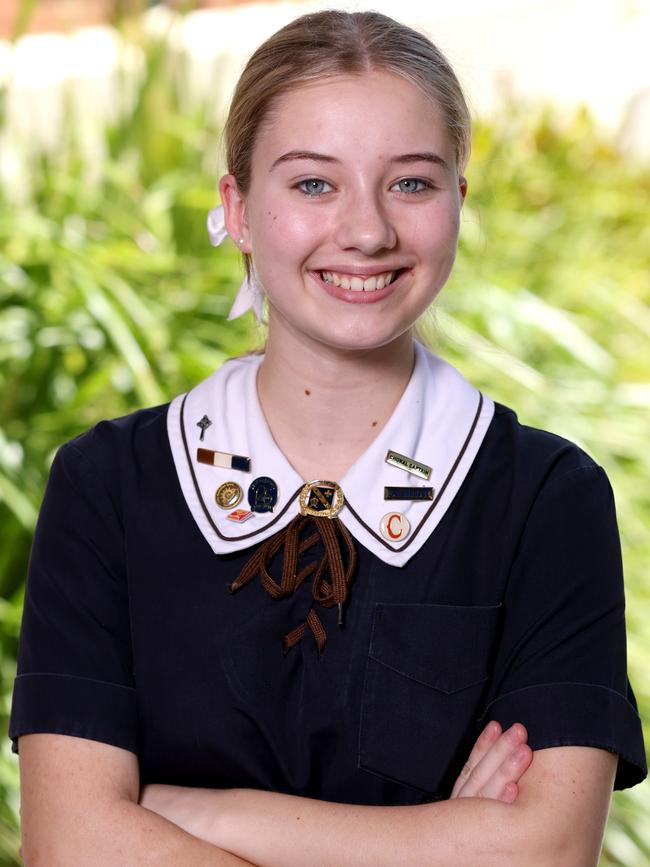QCE English essay: The 1984 question that stumped some students at St Margaret’s Anglican College
As Queensland Year 12 students sat their external English essay on Monday morning, there was one question that stumped many.
Advice
Don't miss out on the headlines from Advice. Followed categories will be added to My News.
As Queensland Year 12 students sat their external English essay on Monday morning, there was one question that stumped many.
St Margaret's Anglican College in Brisbane’s north was all but silent until giggles and chatter followed the girls as they streamed out of the exam hall and shared their thoughts on the first hurdle toward their QCE.
QCE student Eva Matyear, 18, said the question about the proletariat in George Orwell’s 1984 – “How does the representation of the Proles position the reader to view The Party?” – left her feeling a little panicked.
“Just the fact that it was relating to a very specific class of people that (is) not the class that the main characters are in,” she said.
Fellow student Emi McBride, celebrating her 18th birthday, woke up terrified and said her preparation was not helpful for either prompt.
She settled on the second question on the book, “‘How is the audience positioned to see Winston at the end of the novel?”


“So it was just one little section of the novel, but we had to kind of expand it to the greater idea of the novel as well,” she said.
“I wrote down the first thing that came to my mind, and sort of brainstormed branches of ideas from that.
“If you have a question, and you don‘t have any quotes, like, don’t do that, just do the second.”
Mikayla Konilio, 18, who also chose the question about the ending of the book, said she felt overprepared thanks to mock exams given by the school.
“The questions I’d been given were much harder than the actual exam questions,” she said.
“It was a lot more simple and straightforward than I expected it to be.”
Despite her confidence navigating a path to further studies in criminology and psychology, Mikayla said the pandemic had been challenging.
“Because I‘m a boarder, I’ve been away from my family for about three years… they’re in Papua New Guinea,’’ she said.
“But, being a boarder you get a lot more access to the teachers after hours, and from your peers you get a lot more help.”





